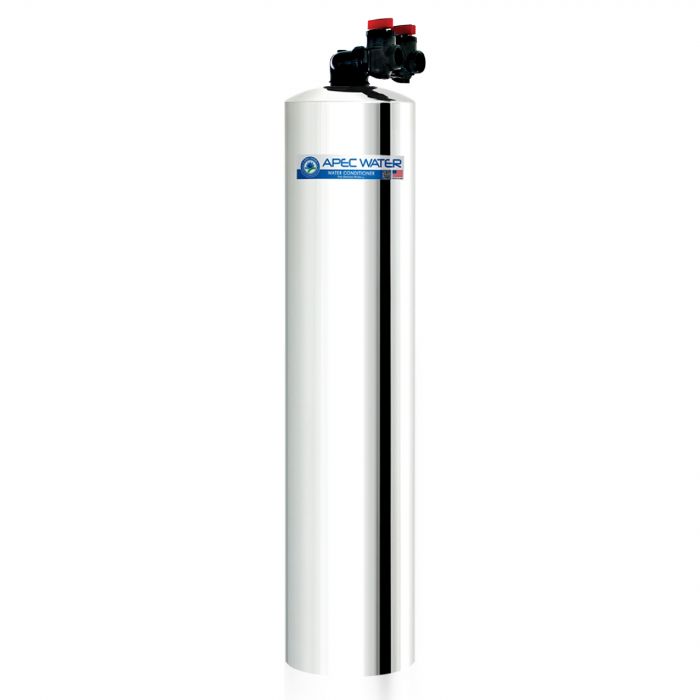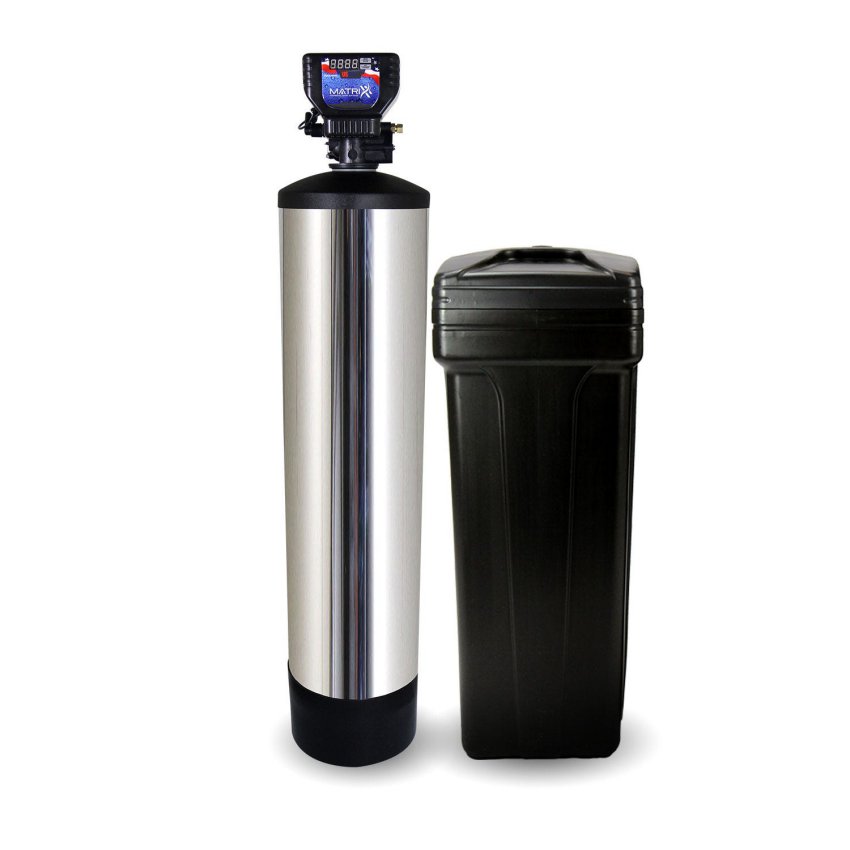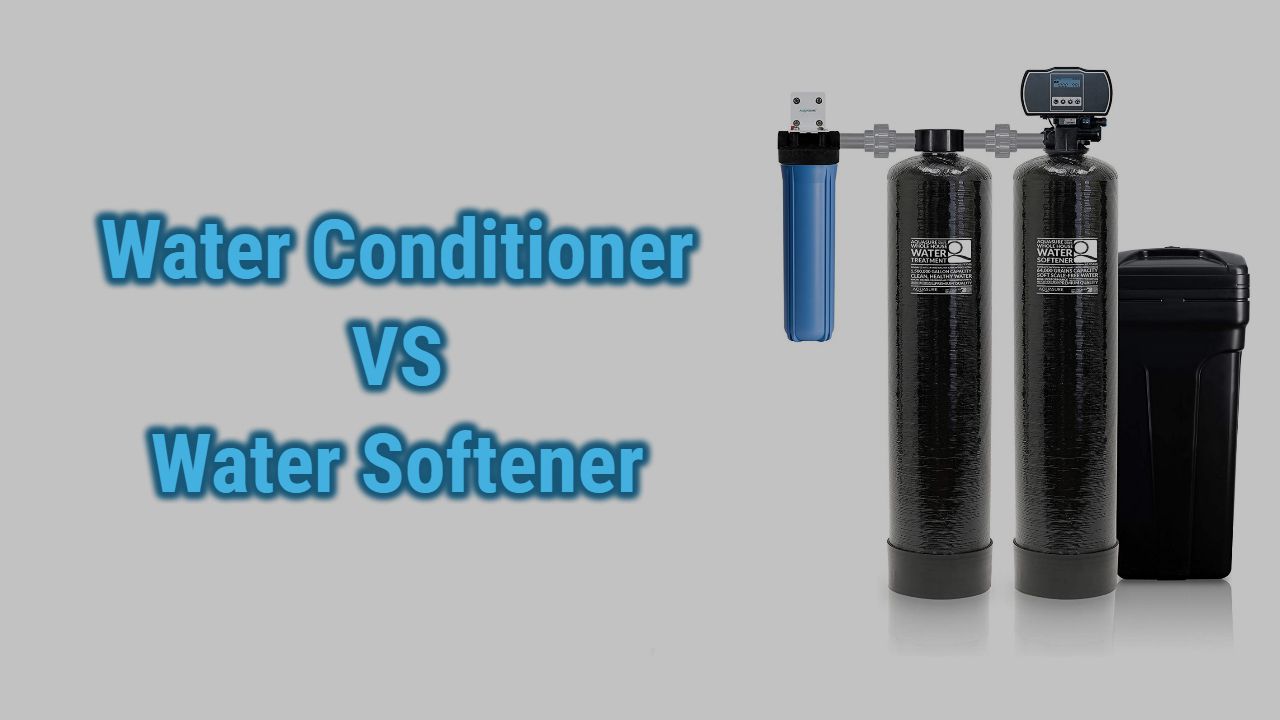When it comes to drinking clean water, a water conditioner or water softener does come to your mind, right? Of course, why not, looking at the deteriorating water state in each continent. Today the quality of water has become so bad that the World Health Organisation has specifically said that the time is not near where a huge population will have to fight water-related diseases and consequently, leading to mass mortality.
So this article will informatically guide you to achieve clean and healthy water through water conditioners and water softener systems. Also, while going through this article, keep in mind that water conditioners are different from water softeners and also give different water results.
Table of Contents
WHAT IS WATER CONDITIONER?

The main function of a water conditioner is to reduce or eliminate the hardness of water while maintaining the essential minerals present in the water. Water conditioners function as a salt-free process, while water softener requires salt. It primarily removes the harmful impurities and sediments from water.
Unlike a water softener which removes hard minerals like calcium and magnesium, a water conditioner does not. It only cleans the water and removes dirty elements present in it. Water conditioner is mainly used in households due to its low maintenance and also protects the surface from eroding and saves the home plumbing system.
TYPES OF WATER CONDITIONERS
1. Carbon Filtered Conditioners
These conditioners are fitted with carbon material to remove the water impurities. Carbon filters act as a sediment filter barrier to water systems. It is actively used in purification systems of water by many companies. This filter essentially removes organic compounds, for example like sulfur and chlorine. It also helps in removing water odor and false water taste. Do remember that conditioners do not soften the water; instead, they remove the hardness of water by eliminating impurities.
2. Salt-free Catalytic Conditioners
These salt-free conditioners use a physical process called Template Assisted Crystallization (TAC) for removing the hardness of the water. By removing the hardness of water, they condition it. But after analyzing a few experts have said that this conditioner actually in real does not effectively remove the hardness of the water.
3. Electromagnetic or Magnetic Water Conditioners
This process is nothing but based on magnetic field theory. A wire or magnet is made to sit on the water pipe to make that magnetic agitation in water, thus removes the hardness. In practice, it rarely removes the hardness but does bring little quality to the water. This process is also less expensive. Since it is backed by Scientific theory, very few understand its actual functioning and results. Also, the treated water is said to have a life of up to a maximum of 48 hours. It purifies the water by removing chemical impurities.
ADVANTAGES AND DISADVANTAGES OF WATER CONDITIONERS
- Removes chemicals from the water like chlorine, the volatile organic compound (VOC).
- Protects your home plumbing systems from degrading soon.
- Reduces hard water effects.
- Makes water fit for drinking and cooking. Even tap water can be made drinkable.
- Maintenance-free and easy to set up.
- Do not remove hard minerals like calcium and magnesium.
- focus more on how to make water fit for drinking.
WHAT IS WATER SOFTENER?

Water softeners are one of the widely used purification systems used widely by households and for commercial use. Hard water is made softer by going through the processes like ion exchange and reverse osmosis. Water softener’s main function is to remove hard minerals like calcium and magnesium carbonates and by replacing them with sodium and potassium.
It replaces with sodium and potassium because these soft elements are good for the inner pipes and water. By this, it ensures water is clean. A water softener is primarily a salt-based purification system. A softener takes care of the hardness of water, but it does not guarantee healthy drinking water.
TYPES OF WATER SOFTENER
1. Salt-based ion Exchange Systems
it is the traditional methods mentioned above that remove hard minerals like calcium and magnesium.
2. Dual tank Systems
There are two tanks involved. One regenerates water while the other is used for softening the water.
3. Reverse Osmosis
It goes through various filtration processes to make the water softer for a drink, the most commonly used method for filtration.
ADVANTAGES AND DISADVANTAGES OF WATER SOFTENER
- Removes calcium and magnesium and replaces them with sodium and potassium.
- Deeply removes hard water.
- Lots of water is wasted, and cant is used for allied areas like lawns.
- Low energy bill due to low consumption.
- Removes stains.
- Keeps hairs and skin smooth and nourished.
DO’S AND DON’T FOR WATER CONDITIONER & WATER SOFTENER
What does a water conditioner do?
- Changes the hard water to soft by conditioning it
- Tries to save water by reducing the amount of wastewater it generates. Actually, it conditions the water and makes it fit for human use.
- Another great work done by conditioners is that it helps in removing many macro and microchemical from water.
- It helps in eliminating scale that develops in plumbing systems but doesn’t help protect from scaling for a long time.
What a water conditioner won’t do?
- It will soften the water but will not remove hard particles that are present in the water because it doesn’t have the capacity to remove hard particles or sediments.
- It will not lower the TDS- Total Dissolved Solids.
- Keep scale build-up in appliances and households.
What does a water softener do?
- Remove scale-up jammed up your pumping systems at home and industries.
- Remove hard particles like calcium and magnesium, which are crucial head particles.
- Reduces soap and detergent usage plus helps keep the skin and hair toned and smooth due to its quality water that the softener makes.
- Water becomes soft after adding sodium and potassium.
What a water softener won’t do?
- It won’t remove additional chemicals like pesticides, chlorine, etc
- Removes virus or bacteria because the water treatment softener system is not designed to do so.
- It doesn’t help make tap water better or clean for drinking.
TABLE OF DIFFERENCE BETWEEN CONDITIONER AND SOFTENER
| Difference | Water Softener | Water Conditioner |
|---|---|---|
| Requires salt | NO | YES |
| Impact on skin and hair | Calcium and magnesium remain in the water | Calcium and magnesium are removed from the water |
| Protection efficiency | 41% to 98.9% effective | 99%+ effective |
| Environmental effect | Doesn’t create wastewater | Creates wastewater |
| Slippery effect | NO | YES |
CONCLUSION
If we analyze by looking at the above information provided, it is clear that both the purification systems are great in their respective place. Both have specific roles and functions to play and require their own purposes for installation.
Both have been designed for a specific function, in some households and industries require only water conditioner, knowing that its function is suitable for such platform whereas few require water softener where water is hard for use, And also many forms and household use both as a sense of satisfaction from all areas, meaning getting benefits from both systems.
So nevertheless, it comes out to your specific requirement of water purification systems. A simple piece of advice I would like to suggest is- while deciding which system to get, ask yourself where am I going to use the system? What is the water condition of that area? What are my water requirements? Getting these cleared will land you on a good buying decision. Always prioritize your water quality and make sure you drink the best that is fit for your health.
Reverse Osmosis System Vs Water Softener
How to Know If Your Water Softener is Working?
How to Remove Iron from Well Water?
